Price-Earnings Ratios for New Apartments in Tokyo in 2017

According to Tokyo Kantei, the price-earnings ratio (PER) for brand new apartments in the greater Tokyo region was 24.49 in 2017, down from a record high of 28.66 seen in 2016. A PER of 24.49 indicates a gross yield of approximately 4.04%. A PER above 20 will imply a gross yield below 5.00%. In this survey, 90% of locations had PERs of over 20.
The average price of a 70 sqm (753 sq.ft) new apartment in 2017 was 66,840,000 Yen, up 2.9% from 2016, while the average monthly rent was estimated at 224,905 Yen, up 2.5%.Read more
New apartment starts in 2017 reach lowest level in 7 years
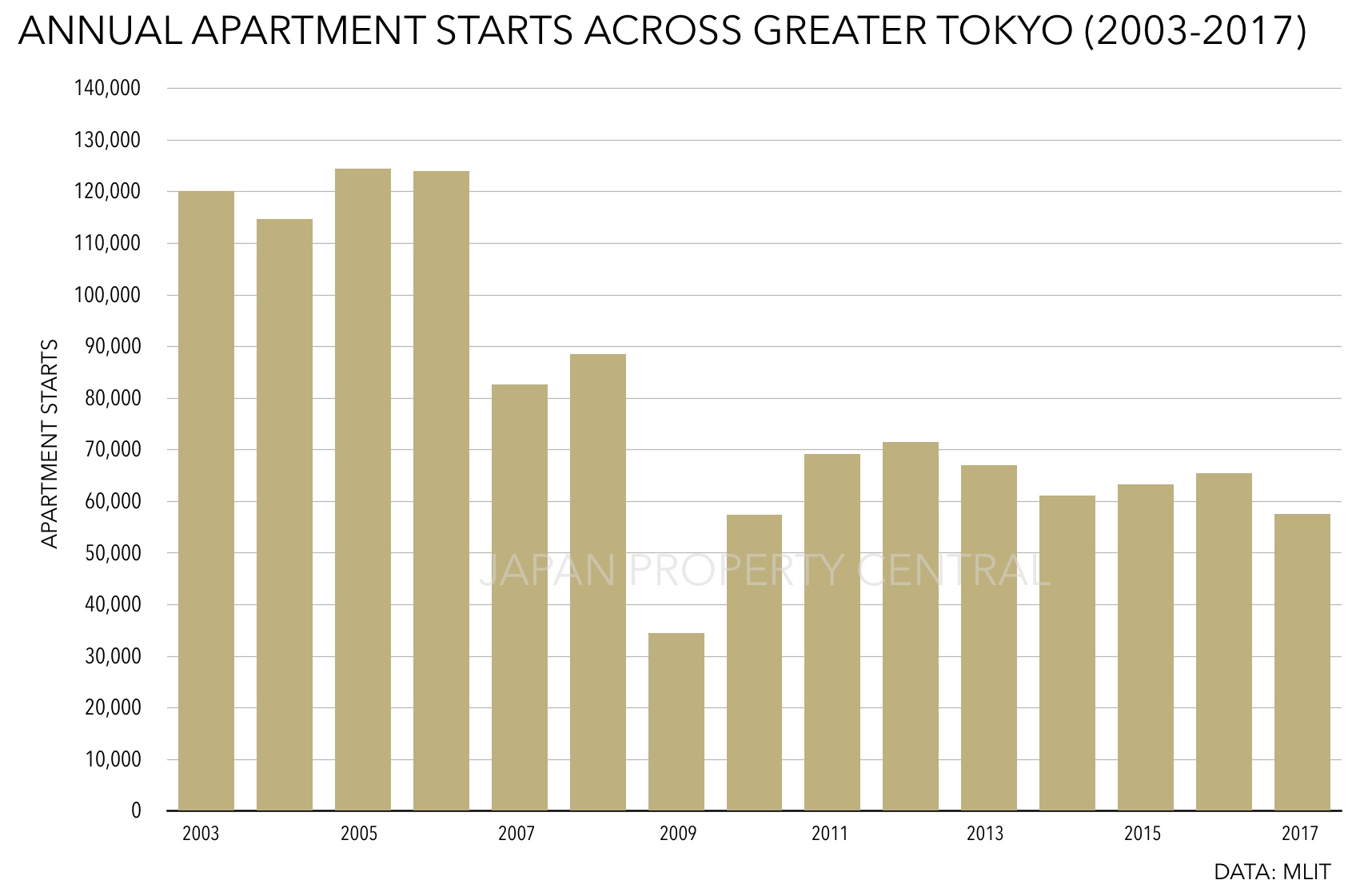
Apartment starts in the greater Tokyo area in 2017 reached the lowest level seen in seven years. According to the Ministry of Land, Infrastructure, Transport and Tourism (MLIT), apartment starts were 57,591 units, down 12% from 2016. The Ministry cites an early rush by developers to get large-scale projects off the ground in the lead up to the 2020 Olympics and difficulty in securing sites for residential developments as the two contributors to a recent slow down in residential construction.Read more
Tokyo's Koto ward to restrict development of family-type apartments to limit population growth
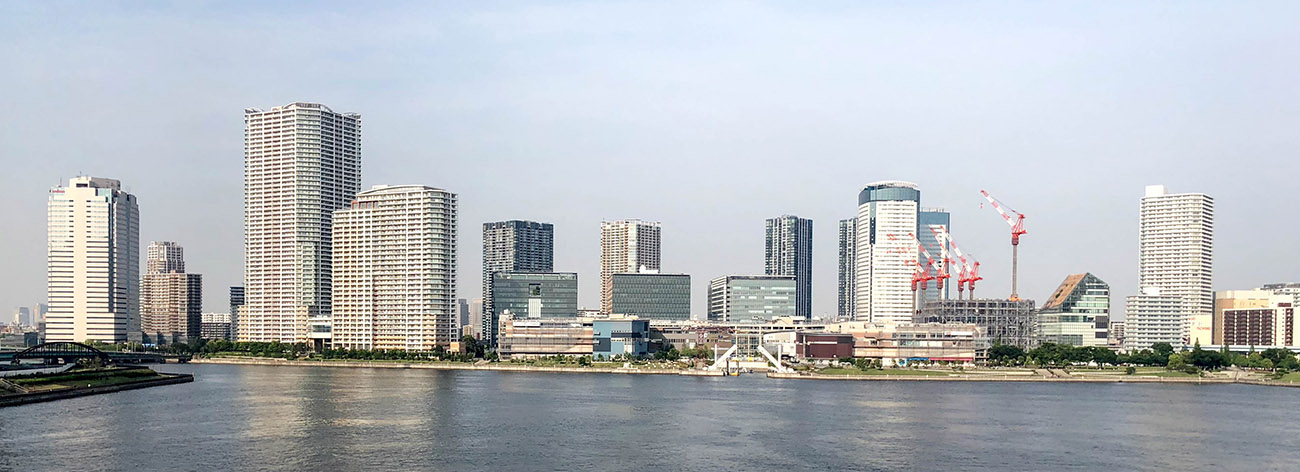
While some regional districts in Japan are suffering from an ageing and shrinking population, urban centers are struggling with the growing pains from an increase in the number of younger residents. In an attempt to limit the number of children in the ward, Koto in Tokyo is introducing restrictions on the development of family-type apartments. A surge in the population of young families, due in part to a boom in the construction of high-rise apartment towers in the Tokyo bayside area, is putting a strain on the ward’s nurseries and elementary schools.Read more
Tokyo Apartment Sales in April 2018
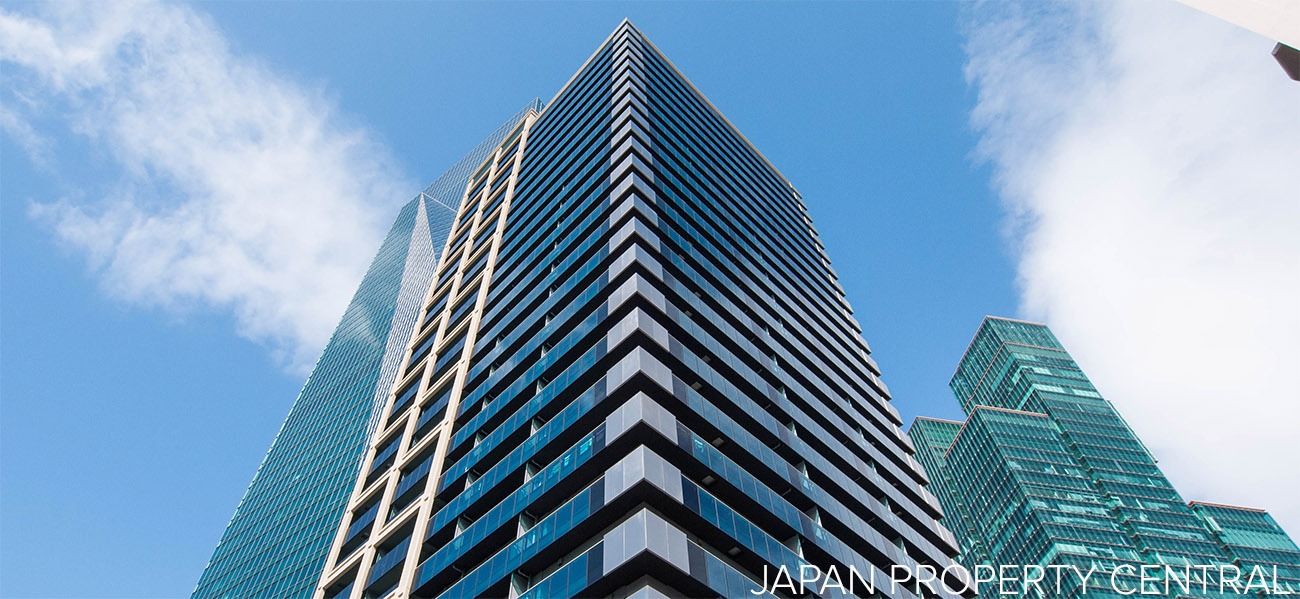
The following is a selection of apartments that were reported to have sold in central Tokyo during the month of April 2018:Read more
Apartment asking prices across greater Tokyo increase for first time in 4 months
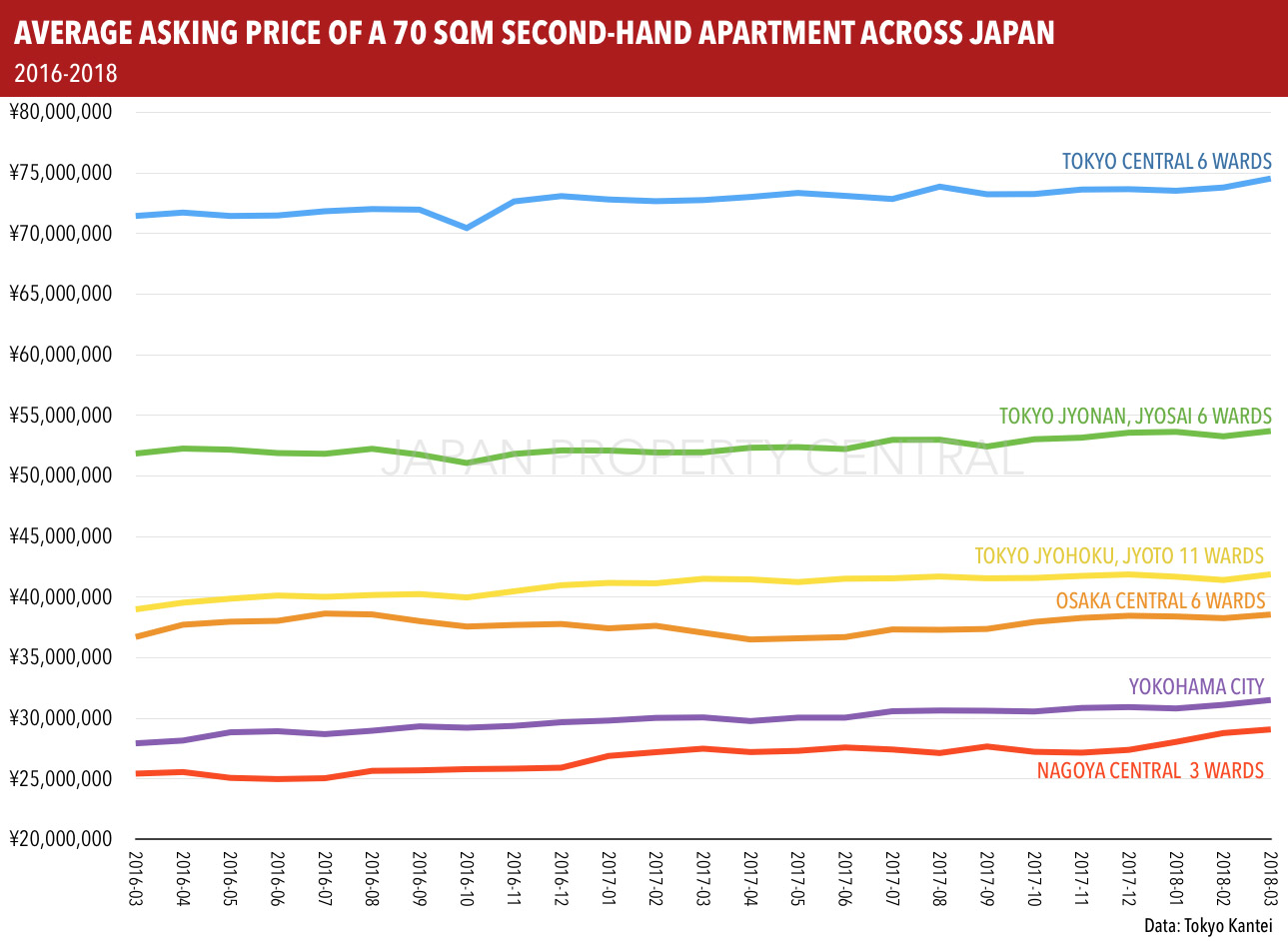
According to Tokyo Kantei, the average asking price of a 70 sqm (753 sq.ft) apartment across greater Tokyo was 36,190,000 Yen in March, up 0.6% from the previous month and up 1.1% from last year. This was the first increase in four months. The average building age was 23.2 years.Read more
New apartment prices across greater Tokyo hit highest price since 1990
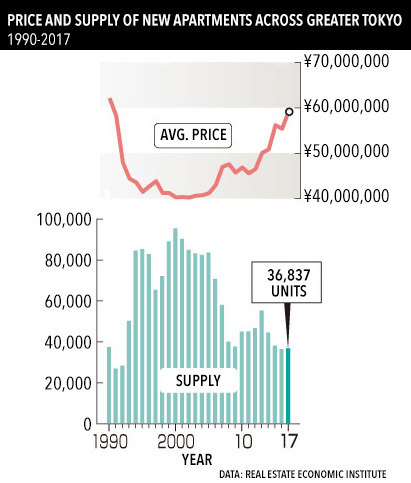
According to a report issued by the Real Estate Economic Institute on April 16, the average price of a brand new apartment across greater Tokyo was 59,210,000 Yen in fiscal 2017, an increase of 6.9% from 2016 and the highest level seen since 1990 when the average price peaked at 62,140,000 Yen. High labor and construction costs along with rising land prices have been a major contributor to the high sale prices of apartments in and around the capital.
A total of 36,837 brand new apartments were released for sale, a 1.1% increase from 2016 and the first increase seen in four years. This is still far short of the peak supply of 95,479 apartments seen in 2000. The average price per square meter was 864,000 Yen, up 7.9% from 2016.Read more
Share house investment scam sees bank share price dive 20% in one day
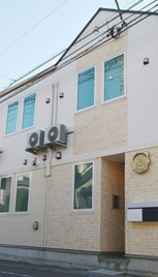 The scandal surrounding a failed share house developer continues to grow this month as more information about dodgy spruiking tactics and falsified documents comes to light. As many as 700 investors from a single share house developer are facing potential bankruptcy, but the number of victims could easily rise as other investment-spruiking companies are put under the spotlight.
The scandal surrounding a failed share house developer continues to grow this month as more information about dodgy spruiking tactics and falsified documents comes to light. As many as 700 investors from a single share house developer are facing potential bankruptcy, but the number of victims could easily rise as other investment-spruiking companies are put under the spotlight.
A lawyer representing a class action by investors against the Tokyo-based share house company alleges that the inflated price of the share houses sold to investors was determined by the maximum amount that the bank was willing to lend a buyer, rather than the true market price. A gross return was 8 ~ 9% was then applied to the sale price, even if it was higher than the market rent. The buyer would buy under the assumption that they could rely on stable, guaranteed rents that would provide them with a cash surplus each month. The high yield was only possible because the share house operator was providing a rental guarantee that far exceeded the rent they were receiving - causing the operator to lose money each month.Read more
